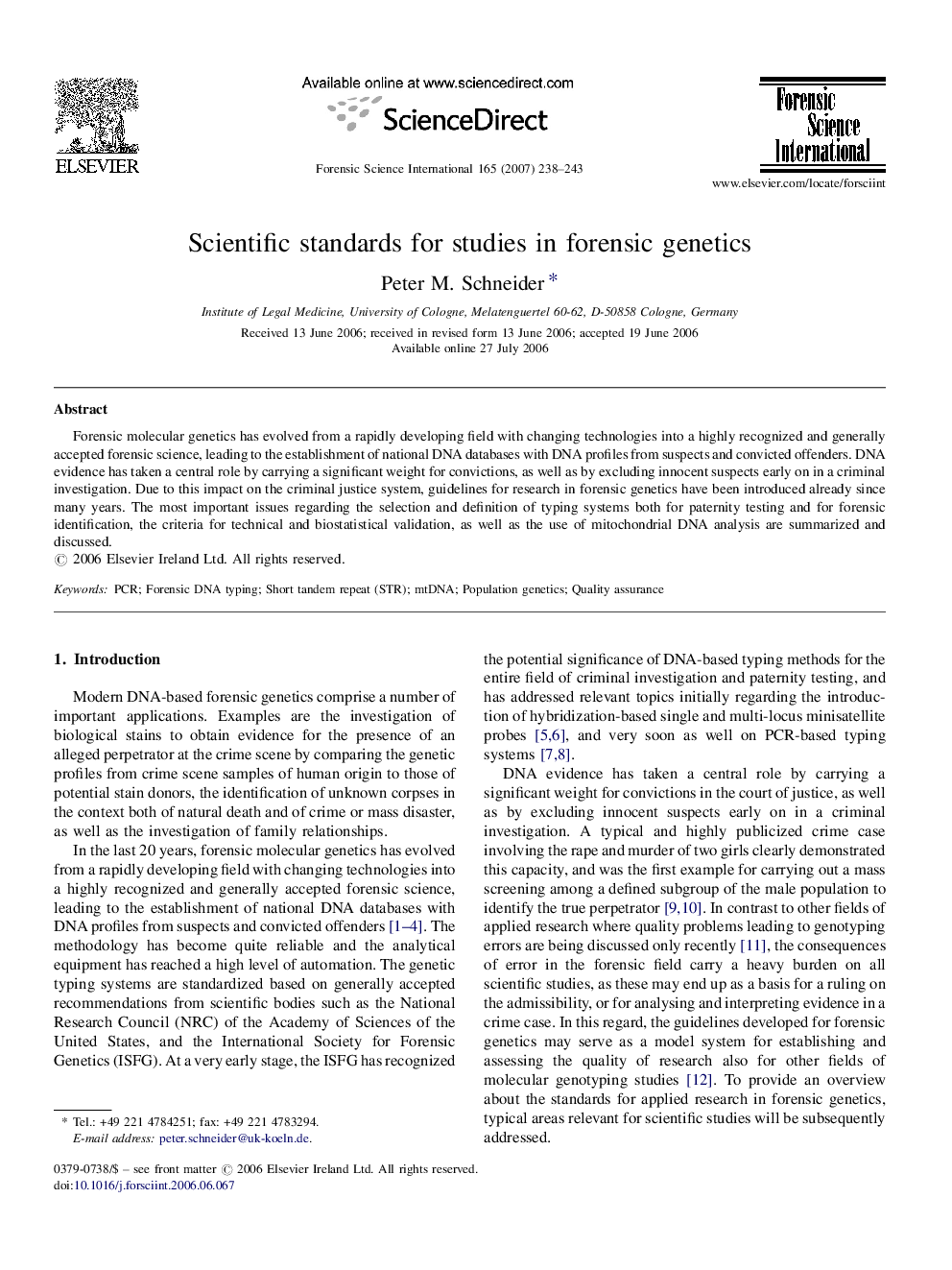| Article ID | Journal | Published Year | Pages | File Type |
|---|---|---|---|---|
| 98245 | Forensic Science International | 2007 | 6 Pages |
Forensic molecular genetics has evolved from a rapidly developing field with changing technologies into a highly recognized and generally accepted forensic science, leading to the establishment of national DNA databases with DNA profiles from suspects and convicted offenders. DNA evidence has taken a central role by carrying a significant weight for convictions, as well as by excluding innocent suspects early on in a criminal investigation. Due to this impact on the criminal justice system, guidelines for research in forensic genetics have been introduced already since many years. The most important issues regarding the selection and definition of typing systems both for paternity testing and for forensic identification, the criteria for technical and biostatistical validation, as well as the use of mitochondrial DNA analysis are summarized and discussed.
